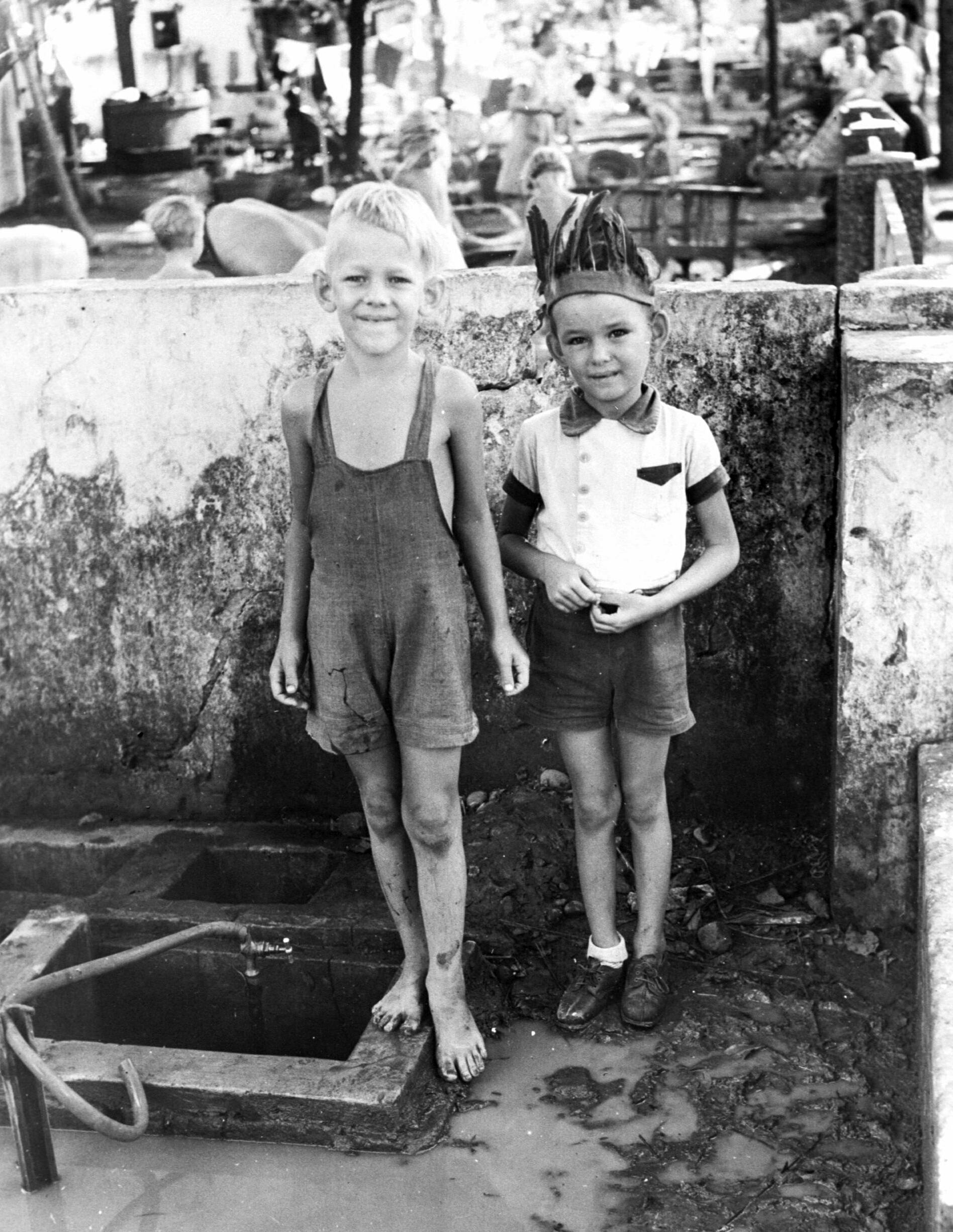Tjideng Birthday

Tjideng Birthday
A Tjideng Birthday had ceased to have meaning , and the case of many like me, had been feared. Boys ten years and older were forcibly removed from the care of their mothers and left to fend for themselves in “boys camps”. If they were very luck they might be reunited with their fathers, but this was rare. Birthdays had long been abandoned as a milestone of life not worth celebrating.
When it was my turn to have a Tjideng birthday, on 25 August 1945 , that threat of removal by the Japanese Army was gone, but its fear haunted me for several years after the war. My mom did her best to let me celebrate my 7th birthday in Tjideng by giving me a present camp and an unknown photographer a short while later captured the scene. Discovering this image was a matter of astonishing pure luck. This is how it happened
In order to research material for the book Tjideng Reunion I had arranged a visit to the NIOD office in Amsterdam where all documents related to the second world war, both in the Netherlands and the Netherlands East Indies, had been archived. My quest consisted of two objectives: the search through documents that had a bearing on our own stay in Indonesia, and to seek permission to include in my planned publication some of the photographs that they possessed. Pictures I had in mind were those I had seen in other publications.
I was startled to suddenly confront an image of myself that I had never seen before and about which NIOD knew no more than its catalogue number and that it had been taken in Tjideng at an unknown date “probably by a Eurasian photographer” who had been left at liberty during the Japanese occupation.
This is an image of yours truly at age 7 standing with bare feet by the solitary water supply serving our house at number 91, Laan Trivelli, Batavia. Before the war it had been a typical single family three bedroom dwelling, but after 11 May 1945 accommodated, if that is the right word, one hundred and ten souls. The septic field for this house that had once been adequate had long ago ceased to function. Chapter ten of Tjideng Reunion provides a description of life during this postwar period of incarceration in a Hellhole. Elsewhere in Java a new conflict was breaking out.
The rather well-dressed young gentleman standing by my side had, for the occasion, donned the Indian headdress accompanying an exceedingly uncomfortable, long-sleeved, long legged heavy brown cotton Indian suit that mom had given me for my birthday on August 25. Jakarta then as now is hot. He has finally (2016) been identified as Pieter ten Cate, who had traveled with us from Tjihapit in May 1945.

Number 91 Jalan Tanah Abang II, Jakarta, is still a house, now in much better shape than when it served as our accommodation, but this neighbourhood of Jakarta has undergone a profound change and what we used to call a “garden,” for want of a better term, is now a second hand car lot . The garden wall is gone, the water supply access where I had posed for my portrait, once more covered over.
Leave a Reply